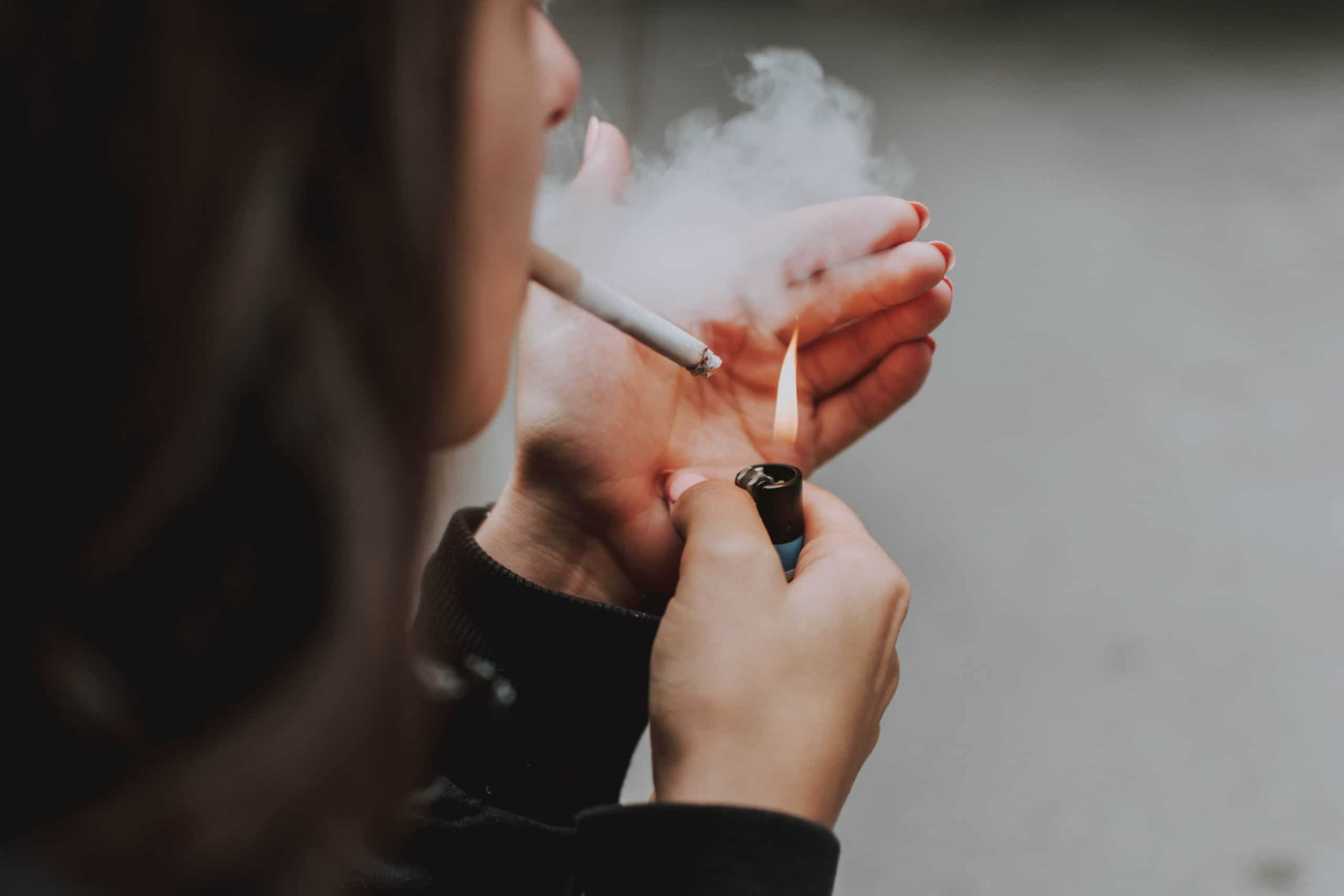Polycystic ovary syndrome (PCOS) is often dismissed as a 'menstrual issue' but affects a fifth of India's women and has severe implications if left untreated. It's time we had serious disccusions on the issue, says Amrita Madhukalya
She would try and block from her mind the several times boys in school would unkindly remind her of her growing moustache. Yet, it was the unexpected comment from her friend's mother that unsettled Swagata the most.
"I had gone to this guy's house along with some friends. His mom spoke to us and cracked a few jokes. Things were beginning to get fun. And then she looked at me and said, 'When you get married, we will gift you a huge hamper of razors.' I was speechless," says Swagata, who was 14 then.
Swagata suffered from a milder form of polycystic ovary syndrome (PCOS). Her periods were regular, but heavy. So the extra weight and unwanted hair on certain parts of her body, especially her face and chin, were not a huge concern for her mother, who did not seek medical attention for the teenager at the time.
Hers is one of the millions of such cases in India. It is also symptomatic of the attitudes that shroud menstrual issues like PCOS. As growing adolescents, young girls who suffer from PCOS are routinely jeered by peers, because in the accepted idea of femininity, there's no space for zits and moustaches.
PCOS, if untreated, can have severe implications. And many say there is no permanent cure. Since it affects a fifth of India's women, mostly in their prime, a national policy to tackle it should be a priority.
Medically, PCOS has been understood to be a complex hormonal medical condition in which the presence of immature follicles in the ovary leads to the expression of 'male' characteristics in a woman. This includes hirsutism, a hoarse voice, obesity and irregular periods. The expression of these symptoms could also lead to type 2 diabetes and cardiovascular disease in later life, apart from cancer of the uterus.
A study conducted in 2015 by Metropolis Healthcare on 27,411 women across India revealed that 17.60 per cent of them had symptoms of PCOS. Most of these were in the age group of 15 to 30 years, with east India showing the highest prevalence region-wise, at 25.88 per cent.
Another study conducted by the Indian Journal of Endocrinology and Metabolism in Mumbai on 600 young girls found that 22.5 per cent had some form of PCOS, with 19.2 per cent having hyper-insulinemia. The study also found that obese girls had more hair, were hypertensive and had more mean insulin.
Dr Sujata Dalvi of the department of gynaecology at Mumbai's Global Hospital says most adolescent patients are painfully shy. "It is usually the mothers who bring them, while the young women rarely find the confidence to talk about their problems," she says. "Most mothers, or in some cases, mothers-in-law, come to us to help keep the girls' facial hair in check, or to regularise their periods. Not many think of long-term ramifications like type 2 diabetes, cardiovascular disease, etc."
In rural areas, even today, over 60 per cent of adolescent girls reuse cloth during periods. Unhealthy practices and a lack of awareness stops necessary conversations on the issue.
Bengaluru-based media professional Prachi Sibal says that medically too, the issue does not get the full attention of doctors. "Most gynaecologists I have consulted prescribe over-the-counter contraceptives that have serious results like cardiovascular complications in later life," says Sibal, who discovered she had PCOS fours years after the onset of menarche. She would have irregular periods, pain and had problems controlling her weight. She took morning sickness pills for years before she realised how harmful they are.
Doctors usually suggest 'lifestyle change' and a different diet without really inquiring about the patient. "When you ask what dietary changes one should adopt, they say you should cut down on refined sugar," she says.
Pallavi Pundir, a journalist with a prominent daily, was given over-the-counter contraceptives and even weight loss pills that made her throw up if she ate anything more than prescribed. A few years ago, she had an acne breakout and unusual weight gain. Her mother, who first did not understand the severity of the problem, later discovered that she had developed ovarian cysts.
"Doctors see this as a lifestyle problem. I was given contraceptives to be used indefinitely and also asked to exercise regularly," says Pundir. Rigorous exercise is generally discouraged if one has PCOS.
According to Dr Beena Muktesh of the fertility department at Gurgaon's Cloudnine Hospital, parents must play a pivotal role in the treatment. "Many parents see this as an inconvenience; they overlook the seriousness because of the facial hair and other immediate expressions. There are also several parents who come here because they are worried about the girl's marriage and whether she will conceive or not."
Doctors also ask patients whether they are married or not, and if yes, whether they want to conceive. If a patient wants to conceive, then doctors show interest in treatment, because family-planning is considered important. Many also believe that conception may cure PCOS. In some cases, it does, though this is an insignificant number.
![submenu-img]() US imposes sanctions on Chinese, Belarus firms for providing ballistic missile tech to Pakistan
US imposes sanctions on Chinese, Belarus firms for providing ballistic missile tech to Pakistan![submenu-img]() 'Don't have any comment': White House mum on reports of Israeli strikes in Iran
'Don't have any comment': White House mum on reports of Israeli strikes in Iran![submenu-img]() Yes Bank co-founder Rana Kapoor gets bail after four years in bank fraud case
Yes Bank co-founder Rana Kapoor gets bail after four years in bank fraud case![submenu-img]() Barmer Lok Sabha Polls 2024: Check key candidates, date of voting and other important details
Barmer Lok Sabha Polls 2024: Check key candidates, date of voting and other important details![submenu-img]() This star once lived in garage, earned Rs 51 as first salary; now charges Rs 5 crore per film, is worth Rs 335 crore
This star once lived in garage, earned Rs 51 as first salary; now charges Rs 5 crore per film, is worth Rs 335 crore![submenu-img]() DNA Verified: Is CAA an anti-Muslim law? Centre terms news report as 'misleading'
DNA Verified: Is CAA an anti-Muslim law? Centre terms news report as 'misleading'![submenu-img]() DNA Verified: Lok Sabha Elections 2024 to be held on April 19? Know truth behind viral message
DNA Verified: Lok Sabha Elections 2024 to be held on April 19? Know truth behind viral message![submenu-img]() DNA Verified: Modi govt giving students free laptops under 'One Student One Laptop' scheme? Know truth here
DNA Verified: Modi govt giving students free laptops under 'One Student One Laptop' scheme? Know truth here![submenu-img]() DNA Verified: Shah Rukh Khan denies reports of his role in release of India's naval officers from Qatar
DNA Verified: Shah Rukh Khan denies reports of his role in release of India's naval officers from Qatar![submenu-img]() DNA Verified: Is govt providing Rs 1.6 lakh benefit to girls under PM Ladli Laxmi Yojana? Know truth
DNA Verified: Is govt providing Rs 1.6 lakh benefit to girls under PM Ladli Laxmi Yojana? Know truth![submenu-img]() Remember Ali Haji? Aamir Khan, Kajol's son in Fanaa, who is now director, writer; here's how charming he looks now
Remember Ali Haji? Aamir Khan, Kajol's son in Fanaa, who is now director, writer; here's how charming he looks now![submenu-img]() Remember Sana Saeed? SRK's daughter in Kuch Kuch Hota Hai, here's how she looks after 26 years, she's dating..
Remember Sana Saeed? SRK's daughter in Kuch Kuch Hota Hai, here's how she looks after 26 years, she's dating..![submenu-img]() In pics: Rajinikanth, Kamal Haasan, Mani Ratnam, Suriya attend S Shankar's daughter Aishwarya's star-studded wedding
In pics: Rajinikanth, Kamal Haasan, Mani Ratnam, Suriya attend S Shankar's daughter Aishwarya's star-studded wedding![submenu-img]() In pics: Sanya Malhotra attends opening of school for neurodivergent individuals to mark World Autism Month
In pics: Sanya Malhotra attends opening of school for neurodivergent individuals to mark World Autism Month![submenu-img]() Remember Jibraan Khan? Shah Rukh's son in Kabhi Khushi Kabhie Gham, who worked in Brahmastra; here’s how he looks now
Remember Jibraan Khan? Shah Rukh's son in Kabhi Khushi Kabhie Gham, who worked in Brahmastra; here’s how he looks now![submenu-img]() DNA Explainer: What is cloud seeding which is blamed for wreaking havoc in Dubai?
DNA Explainer: What is cloud seeding which is blamed for wreaking havoc in Dubai?![submenu-img]() DNA Explainer: What is Israel's Arrow-3 defence system used to intercept Iran's missile attack?
DNA Explainer: What is Israel's Arrow-3 defence system used to intercept Iran's missile attack?![submenu-img]() DNA Explainer: How Iranian projectiles failed to breach iron-clad Israeli air defence
DNA Explainer: How Iranian projectiles failed to breach iron-clad Israeli air defence![submenu-img]() DNA Explainer: What is India's stand amid Iran-Israel conflict?
DNA Explainer: What is India's stand amid Iran-Israel conflict?![submenu-img]() DNA Explainer: Why Iran attacked Israel with hundreds of drones, missiles
DNA Explainer: Why Iran attacked Israel with hundreds of drones, missiles![submenu-img]() This star once lived in garage, earned Rs 51 as first salary; now charges Rs 5 crore per film, is worth Rs 335 crore
This star once lived in garage, earned Rs 51 as first salary; now charges Rs 5 crore per film, is worth Rs 335 crore![submenu-img]() Meet actress, who worked as cook for free food, mopped floors, one Instagram post changed her life, is now worth…
Meet actress, who worked as cook for free food, mopped floors, one Instagram post changed her life, is now worth… ![submenu-img]() UP man arrested for booking cab from Salman Khan's house under Lawrence Bishnoi's name
UP man arrested for booking cab from Salman Khan's house under Lawrence Bishnoi's name ![submenu-img]() 'Justice milega': Ankita Lokhande talks about Sushant Singh Rajput, reveals she's still connected with his family
'Justice milega': Ankita Lokhande talks about Sushant Singh Rajput, reveals she's still connected with his family![submenu-img]() Rajkummar Rao reacts to plastic surgery rumours, admits he got fillers: 'If something gives me confidence...'
Rajkummar Rao reacts to plastic surgery rumours, admits he got fillers: 'If something gives me confidence...'![submenu-img]() IPL 2024: KL Rahul, Quinton de Kock star in Lucknow Super Giants' dominating 8-wicket win over Chennai Super Kings
IPL 2024: KL Rahul, Quinton de Kock star in Lucknow Super Giants' dominating 8-wicket win over Chennai Super Kings![submenu-img]() DC vs SRH, IPL 2024: Predicted playing XI, live streaming details, weather and pitch report
DC vs SRH, IPL 2024: Predicted playing XI, live streaming details, weather and pitch report![submenu-img]() Watch: Virat Kohli's cheeky 'your wife' remark to Dinesh Karthik leaves RCB teammates in splits
Watch: Virat Kohli's cheeky 'your wife' remark to Dinesh Karthik leaves RCB teammates in splits ![submenu-img]() DC vs SRH IPL 2024 Dream11 prediction: Fantasy cricket tips for Delhi Capitals vs Sunrisers Hyderabad
DC vs SRH IPL 2024 Dream11 prediction: Fantasy cricket tips for Delhi Capitals vs Sunrisers Hyderabad![submenu-img]() 'Kohli said it's not an option, just...': KL Rahul recalls his IPL debut for RCB in 2013
'Kohli said it's not an option, just...': KL Rahul recalls his IPL debut for RCB in 2013![submenu-img]() Canada's biggest heist: Two Indian-origin men among six arrested for Rs 1300 crore cash, gold theft
Canada's biggest heist: Two Indian-origin men among six arrested for Rs 1300 crore cash, gold theft![submenu-img]() Donuru Ananya Reddy, who secured AIR 3 in UPSC CSE 2023, calls Virat Kohli her inspiration, says…
Donuru Ananya Reddy, who secured AIR 3 in UPSC CSE 2023, calls Virat Kohli her inspiration, says…![submenu-img]() Nestle getting children addicted to sugar, Cerelac contains 3 grams of sugar per serving in India but not in…
Nestle getting children addicted to sugar, Cerelac contains 3 grams of sugar per serving in India but not in…![submenu-img]() Viral video: Woman enters crowded Delhi bus wearing bikini, makes obscene gesture at passenger, watch
Viral video: Woman enters crowded Delhi bus wearing bikini, makes obscene gesture at passenger, watch![submenu-img]() This Swiss Alps wedding outshine Mukesh Ambani's son Anant Ambani's Jamnagar pre-wedding gala
This Swiss Alps wedding outshine Mukesh Ambani's son Anant Ambani's Jamnagar pre-wedding gala








































)




)
)
)
)
)
)